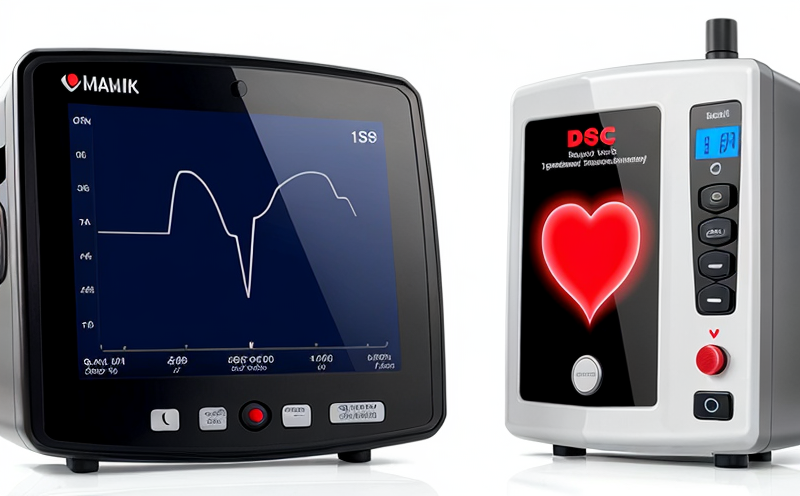ISO 25539-3 Vena Cava Filter Radial Force Testing
The ISO 25539 series provides comprehensive guidelines for testing medical devices, including vena cava filters. This standard ensures the safety and efficacy of these life-saving medical devices by specifying detailed procedures for their mechanical performance evaluation.
Radial force is a critical parameter in determining the structural integrity and stability of vena cava filters. It influences how effectively the filter can prevent embolic material from passing through the inferior vena cava into the heart or lungs, thereby reducing the risk of pulmonary embolism. The ISO 25539-3 standard outlines a precise methodology to measure this force under controlled conditions.
During testing, specimens are subjected to a series of mechanical stresses to simulate real-world scenarios. This includes applying incremental radial forces to assess the filter's ability to withstand these pressures without failure or compromising its intended function. The test setup typically involves specialized fixtures capable of exerting controlled forces on the filter while monitoring deformation and displacement.
The testing process begins with thorough preparation of the vena cava filter specimen. This includes ensuring the device is free from contaminants, properly oriented in the fixture, and calibrated to ensure accurate force measurement. The standard specifies detailed instructions for setting up the test apparatus to minimize variability and ensure consistent results across different specimens.
Once prepared, the radial force testing proceeds by gradually increasing the applied force until it reaches predefined thresholds or causes failure. Data collected during this process is critical in evaluating the filter's performance characteristics, such as its resistance to deformation under stress, and its potential for maintaining patency of the vena cava.
The results of these tests are analyzed according to ISO 25539-3 criteria to determine compliance with regulatory requirements. Compliance ensures that the device meets specified safety standards and is suitable for use in clinical settings. Non-compliance may indicate design flaws or manufacturing inconsistencies, necessitating further investigation and potential rework.
Understanding the importance of this test requires a brief overview of vena cava filters and their role in patient care. Vena cava filters are used to prevent blood clots from traveling through veins into vital organs. They are particularly important for patients who cannot take anticoagulant medications due to risks such as gastrointestinal bleeding or thrombocytopenia.
The ISO 25539-3 standard plays a crucial role in the development and quality assurance of vena cava filters, ensuring that these devices meet stringent safety standards. By adhering to this protocol, manufacturers can ensure their products are reliable and effective, contributing significantly to patient safety and improved healthcare outcomes.
Benefits
The implementation of ISO 25539-3 vena cava filter radial force testing offers several significant benefits:
Enhanced Safety: By rigorously evaluating the mechanical performance of filters, this standard helps identify potential design weaknesses that could lead to device failure.
Improved Efficacy: Ensuring that vena cava filters meet specified force requirements enhances their ability to perform effectively in preventing embolic events.
Compliance with Regulatory Standards: Adherence to international standards like ISO 25539 ensures compliance with global regulatory frameworks, facilitating smoother market entry for medical device manufacturers.
Increased Patient Confidence: Reliable testing builds trust in the effectiveness and safety of vena cava filters, leading to greater patient acceptance and satisfaction.
Cost Efficiency: Early detection of design flaws through thorough testing can reduce costs associated with post-market recalls or product failures.
Enhanced Reputation: Compliance with international standards can enhance a manufacturer's reputation in the medical device industry, attracting more business and partnerships.
In summary, ISO 25539-3 testing is vital for ensuring the safety, efficacy, and compliance of vena cava filters. This standard not only protects patients but also supports manufacturers in delivering high-quality products that meet global regulatory requirements.
International Acceptance and Recognition
The ISO 25539-3 standard has gained widespread acceptance and recognition within the medical device industry. Its comprehensive approach to testing vena cava filters ensures consistency and reliability across different regions, making it a preferred choice for manufacturers worldwide.
Globally, various regulatory bodies and organizations have adopted this standard as part of their quality assurance protocols. For instance, the United States Food and Drug Administration (FDA) recognizes ISO standards as acceptable equivalents to its own testing procedures, simplifying compliance processes for international companies.
Similarly, European Union directives emphasize the importance of adhering to internationally recognized standards like ISO 25539-3, further enhancing its global applicability. Compliance with these standards not only facilitates easier market access but also fosters greater collaboration between manufacturers and regulatory authorities.
The standard's universal acceptance is a testament to its robustness and effectiveness in ensuring the safety and efficacy of vena cava filters. By aligning with ISO 25539-3, medical device companies can ensure their products meet the highest international standards, thereby enhancing patient care worldwide.
Environmental and Sustainability Contributions
Reduction in Waste: Proper testing minimizes the need for rework or recalls, reducing waste associated with non-compliant devices.
Eco-Friendly Manufacturing Processes: Adherence to ISO standards encourages manufacturers to adopt sustainable practices throughout their production processes.
Innovation and Continuous Improvement: The stringent testing requirements promote ongoing research and development aimed at improving product sustainability and environmental impact.
Global Collaboration: By aligning with international standards, companies can collaborate more effectively on global initiatives to enhance sustainability in the medical device industry.
The ISO 25539-3 standard not only ensures the safety and efficacy of vena cava filters but also contributes positively to environmental sustainability. Its rigorous testing protocols encourage manufacturers to adopt eco-friendly practices, fostering a more sustainable medical device industry globally.





